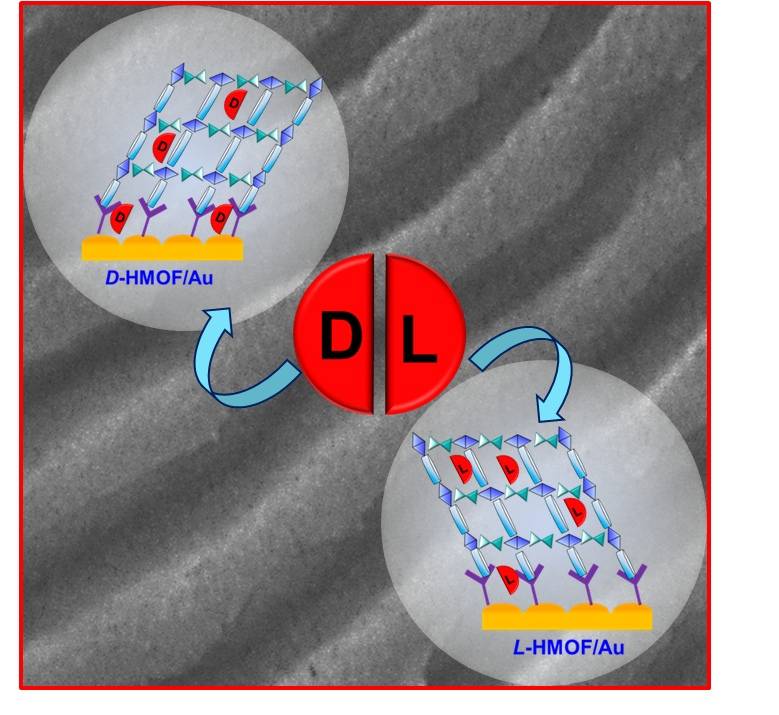
Image Credit: Tomsk Polytechnic University.
Mirror molecules could affect the effectiveness of drugs or even be hazardous to humans. Experiments have shown that the newly created sensors exhibit more sensitive properties than conventional techniques. They work by using organometallic frameworks as traps for enantiomers. The study has been reported in the Applied Materials Today journal.
Enantiomers are molecules that have the same formula and similar physical properties. However, they differ in the directions in which they rotate polarized light. Therefore, they are mirror images of each other. These properties make the enantiomers exhibit different biological effects.
According to Dr Olga Guselnikova, one of the study authors from the group of associate professor Pavel Postnikov, “These are chiral molecules, most of which are part of medicinal substances. Their presence is strictly regulated. The medicine should either not contain enantiomers at all or their concentration should not be harmful for health. So, there should be methods to quickly and efficiently detect enantiomers.”
The currently used detection methods include electrochemical techniques and chromatography. Their detection limit usually does not exceed 10−8 mol per liter. Our sensors demonstrated a detection limit of up to 10−18, i.e. they are ten orders of magnitude more sensitive. Moreover, chromatography is an expensive method.
Olga Guselnikova, Research Fellow, Research School of Chemistry & Applied Biomedical Sciences, Tomsk Polytechnic University
The sensor includes a thin gold plate with a wavy surface. The researchers have employed those plates even in other studies. But in this study, the researchers were successful in grating organometallic frameworks including organic elements and zinc ions.
This acts like a porous structure that traps the targeted substances. This is feasible due to the accurately chosen pore size in the framework and the analogous chemical nature of the compounds that must be trapped.
Specifically, the researchers performed experiments with the framework using lactic acid. Since it is optically active, the organometallic frameworks developed based on its enantiomers could act as a trap for other optically active substances. The newly developed sensor was tested on an antiparkinson drug and several amino acids.
Only a drop of the substance to be analyzed needs to be added to the plate. A portable Raman spectrometer can be employed to perform further analysis, which takes less than 5 minutes.
Our sensor amplifies the signal for the spectrometer simultaneously by two methods. It is a significant element of this study. On the one hand, the signal is physically amplified due to the effect of surface plasmon resonance, generated by the gold plate. On the other hand, our organometallic frames amplify the signal chemically. We were one of the first to demonstrate a sensory system, combining two amplifying methods of the Raman signal.
Olga Guselnikova, Research Fellow, Research School of Chemistry & Applied Biomedical Sciences, Tomsk Polytechnic University
Dr Guselnikova notes that it is possible to use these sensors to regulate the quality of drugs and for environmental monitoring, that is, for the detection of contaminants in soil and water.
The research was performed in collaboration with researchers from the University of Chemistry and Technology of Prague and the University of Jan Purkine (the Czech Republic).
Journal Reference:
Guselnikova, O., et al. (2020) Homochiral metal-organic frameworks functionalized SERS substrate for atto-molar enantio-selective detection. Applied Materials Today. doi.org/10.1016/j.apmt.2020.100666.